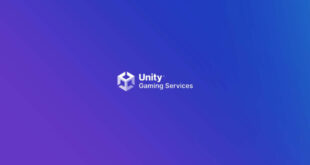One of the big new players on the middleware scene, Unity’s rise to a popular engine is set to skyrocket with the new Windows version. Ed Fear sat down with CEO and co-founder David Helgasson, co-founder Nicholas Francis and evangelist Tom Higgins…
How do you think being on Windows will change things for you?
David Helgasson: Well, for one, we’re going to see our sales numbers go up [laughs]. What the Windows version will really do for us is remove the friction of testing and trialing, and thus convincing users. If you had a serious budget and you wanted to use Unity because you wanted the workflow or features, you’d have to get a Mac. But that’s friction, you know – CTOs were trialling it out on their wives’ Macs. It’s stupid friction.
Why did you originally start on Macs?
DH: Primarily historical reasons. But it’s had its benefits – we’ve been able to mature with a close-knit group of developers that weren’t shouting too loud. And, of course, using Macs to develop has helped with the form factor – the interface of a Mac is so polished that we have to do the same. We’ve spent so much time removing options and simplifying the interface – it’s still as powerful, but making it easier to use was important. But we’ve known for a long time that we had to come to Windows.
Nicholas Francis: Originally we were just a bedroom game maker, and we just had Macs – so that’s what we developed on and for. But yeah, we knew Windows had to be done. We’ve been working on it for about two years now – there was a large codebase that we had to throw out and re-write.
Your userbase was quite vocal against a Windows version – how have they reacted now it’s launched?
DH: We really don’t think it’s going to be a problem. I mean, it’s too early to say, but I think what made the community so nice is that it’s really interested people, really creative people – you know, they’re not idiots. Similarly, Unity isn’t expensive but it isn’t cheap either – there’s the minimum commitment of $200, so the forums have been great so far. I don’t see that changing.
NF: It was the vocal minority that opposed to a Windows version coming, really. I think it was partly resentment about the fact that they’d had to buy a Mac back in the day, but that people don’t have to now.
Unity’s pricing is unique, in that it’s more than something like Torque but less than the big guys. How do you categorise your audience yourselves?
DH: Essentially, we want to provide professional software, like Maya or Photoshop, but we also want to provide that to a very wide range of people. It’s being used by big, hardcore teams – Cartoon Network just launched their MMO FusionFall, for example, and there’s lots of really cool stuff in the pipeline – but also lots of smaller studios are working with it too.
People who have been in the industry ten or 20 years are picking it up and thinking it’s the bee’s knees and start using it for their projects. And then it goes all the way down to hobbyists, students, and even visual professionals who’d otherwise be messing around with something like Flash. And, you know, having this breadth is our mission, it’s what we want to do – it’s important to do it, because you then get this great community of people with different skillsets, all cooperating and helping each other out. If you just stick with the indie audience – you know, like GarageGames – I think you can paint yourself into a corner and get stuck with it. It has to be really good, it has to be viable for high-end professional development.
Do you think that model will serve you well given the belt-tightening that’s going on at the moment?
DH: Yeah, definitely. It’s low cost to enter into, you don’t have call anyone and beg for a price – you can just use your credit card on the website. You can start with one or two people and then grow as you go from prototype to full production.
Also, the focus of Unity is saving you time; it’s been that way for years: the automisation of importing, script recompiling on the fly, the live preview on iPhone; they’re all examples of that. It’s zero-second interaction and iteration, even when you’re working for an external platform. It’s incredibly time-saving, and it’s not just about cost – it helps you make better stuff.
NF: And, of course, people are getting laid off all the time, and a number of them are starting new studios. That’s great business for us. So I guess our pricing model is really good, because whenever anything shakes the industry, we’re like this big net that catches it all.
How has demand been for the iPhone version of Unity?
Tom Higgins: The adoption in the first week or two afterwards was just unbelievable. What was exciting about it was that a lot of the people coming on board were new users. Our basic licence – the indie licence – was just coming in droves, so that was a lot of new attention on us, in addition to all of our existing users who were taking games they already had and re-purposing them for iPhone.
DH: And now there’s about one new iPhone game on the App Store every day that uses Unity, and over 100 in total. One of them – Zombieville USA – is the number two paid App. It’s this pretty simple 2D game with some 3D tricks. Of course, it could have been done with Xcode, but the rapid way of being able to get it up and running and then get it out there, and being able to tune it and so on.
NF: It’s worth noting that a lot of the Unity games that are on the App Store are 2D games. The impression I often get is that customers are really desperate for the source code, because they think that otherwise they’re going to be tied in to whatever game we’ve geared the engine towards. But people are making these 2D games without it.
From the start, we could never agree what games to make ourselves, so we just built an engine that could do it all. So that’s a belief in game development that’s slowly eroding – you don’t need the source code. Large studios, yeah, they are welcome to buy it, but most people really don’t need to. I think the iPhone has really showcased that.
Unity covers so many bases now: MMOs, browsers, iPhone, Wii… do you ever think that you need to stop expanding your reach?
DH: I think there’s value in being in all of those spaces. People don’t like limiting themselves, and if you buy into a development platform you want to be able to do all sorts of different things. There’s a cost to learning a platform, even if the price you pay isn’t that high. So the real scale is achieved when you have all the possibilities.
We saw that with the Wii, actually – people were really excited about it, but they were like ‘well, when we start production, we know if it’ll be Wii or Xbox’. That’s something people want – Xbox 360 support, because
Microsoft’s done a really good job of promoting Xbox Live Arcade as being easy to get onto.
Now you’ve got big guns like EA on board – do you think they’re changing their views on what constitutes a good game engine?
DH: Yeah, I think they are changing their view – they’re realising that it’s not just all about making more console games, more triple-A games: they need to be where the players are, and that’s in the browser and on devices like the iPhone. Some people from big companies have told me that they’re now happy, because they have this tool and they’re in the community next to 14-year olds who’re making all this money from their iPhone games. It’s sort of levelling, you know.
NF: For the large-scale developers, they look at this community and think, wow, here are a lot of people we can hire. If we have problems there’s this great support we can get. They want to be part of a vibrant community. Because, you know, when they use their own proprietary stuff, it makes it impossible for them to get people on board quickly. That’s one of the advantages of being so open – we’ve democratised this, and so many people can use it, that’s great for the big guys.
How have you found dealing with the big guys like EA compared to indies and hobbyists? Some would suggest the latter might be the harder ones to please.
DH: The big guys are really worried before they jump in – they want to meet us in person and so on. They think that, if it’s so cheap, it’s either not any good or that we’ll be going away soon. You kind of have to convince them that this company is actually really successful, we don’t have outside funding, we’re growing, and it’s actual custom that’s paying our way.
TH: I think that when big companies invest in something and get the source code, they can basically take it away and they’ve got it. When they’re investing in a tool like this, they need a little more cajoling. Whereas to the indie developers $199 is a much bigger portion of their expenses, so they tend to want not the world but something close to it.
NF: What’s interesting is that we see that in big studios it’s the people lower-down that pick it up, and then pushing management and saying ‘this is what we should be using’. I think that’s a nice way to enter – it’s not management pushing it on people, they want to do it. It’s a totally different way of selling into an organisation, and it’s really, really nice.

 MCV/DEVELOP News, events, research and jobs from the games industry
MCV/DEVELOP News, events, research and jobs from the games industry



